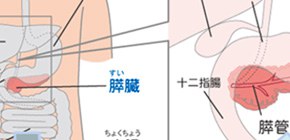
Major step forward in new treatment for type 2 diabetes mellitus
Elevated levels of GLP-1 were maintained in mice for 3 months
A group of researchers at Osaka University has announced the results for a therapeutic vaccine that targets the enzyme dipeptidyl peptidase-4 (DPP4) in mice. Their results show promise for a new and original method of treating type 2 diabetes mellitus (T2DM). That is, the glucagon-like peptide 1 (GLP-1), one of the incretin hormones, is critical for glucose homeostasis. Additionally, GLP-1, secreted mainly from the small intestine after meals, increases insulin secretion and improves insulin sensitivity. However, in T2DM patients, GLP-1 is quickly degraded by DPP4. Therefore, inhibiting the functioning of DPP4 has been a therapeutic target among drug manufacturers and researchers.
These researchers took a totally new approach in their research for inhibiting DPP4 function and developed a vaccine which would bring about inhibition of DPP4 function. They then administered this vaccine to diabetic strains of mice. The vaccinated mice showed improvement of their condition that was equivalent to the effect of DPP4 inhibitors. However, unlike DPP4 inhibiting drugs, the vaccine which they developed shows great promise because, for one thing, it does not require repeated, often daily, dosages of such drugs. In fact, elevated levels of GLP-1 were maintained in mice for 3 months thanks to the therapeutic vaccine they developed.
When the vaccine against DPP4 was administered to diabetic mice fed a high-fat diet, the blood sugar level significantly reduced and the levels of GLP-1 and insulin in blood were high. The antibody levels against DPP4 were sustained for three months after the vaccination and additional administration of the vaccine was found to increase the amount of antibodies. From these results in mice experiments, antibodies against DPP4 induced by vaccine inhibits the functioning of DPP4, a new therapeutic method shows great promise in being applied in human patients with T2DM.
Osaka University personnel involved in this research:
NAKAGAMI Hironori , Endowed Chair Professor, Vascular Medicine and Epigenetics, United Graduate School of Child Development
MORISHITA Ryuichi , Endowed Chair Professor, Department of Clinical Gene Therapy, Graduate School of Medicine
RAKUGI Hiromi , Professor, Department of Geriatric Medicine & Nephrology
Abstract
The increasing prevalence of type 2 diabetes mellitus is associated with a significant economic burden. We developed a dipeptidyl peptidase 4 (DPP4)-targeted immune therapy to increase glucagon-like peptide 1 hormone levels and improve insulin sensitivity for the prevention and treatment of type 2 diabetes mellitus. Immunization with the DPP4 vaccine in C57BL/6J mice successfully increased DPP4 titer, inhibited plasma DPP4 activity, and induced an increase in the plasma glucagon-like peptide 1 level. Moreover, this elevated titer was sustained for 3 mo. In mice fed a high-fat diet, DPP4 vaccination resulted in improved postprandial glucose excursions and insulin sensitivity and, in the diabetic KK-A y and db/db mice strains, DPP4 vaccination significantly reduced glucose excursions and increased both plasma insulin and pancreatic insulin content. Importantly, T cells were not activated following challenge with DPP4 itself, which suggests that this vaccine does not induce cell-mediated autoimmunity. Additionally, no significant immune-mediated damage was detected in cells and tissues where DPP4 is expressed. Thus, this DPP4 vaccine may provide a therapeutic alternative for patients with diabetes.


To learn more about this research, please read the full research report entitled " Therapeutic vaccine against DPP4 improves glucose metabolism in mice " at this page of the Proceedings of the National Academy of Sciences USA website.
Related links :
